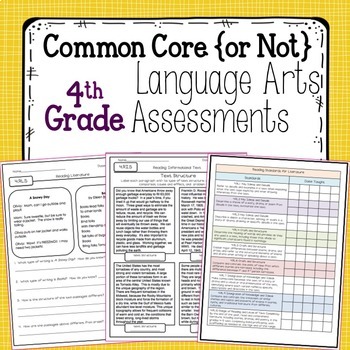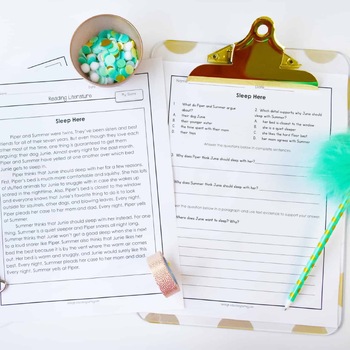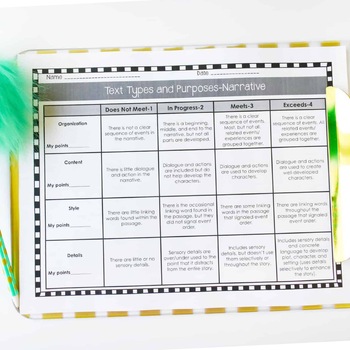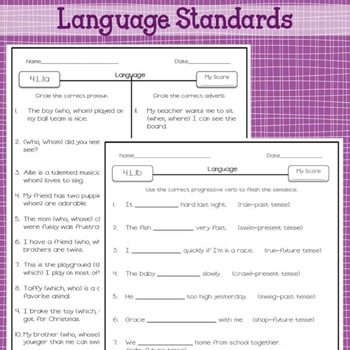4th Grade Language Arts Assessments {Common Core & NOT Common Core}
- Zip
- Google Apps™

What educators are saying
Description
Get at least TWO or THREE Assessments for EVERY Common Core Language Arts Standard
You can now use the assessments with ANY state standard. The Common Core Standards version has the standard listed at the top of each page. There is also an additional version where the standard has been removed, so the assessments can be rearranged to work with almost any state standard.
*************************************************************************
This packet includes a three-page AND one-page assessment for almost every reading and language standard. There are also rubrics for the writing standards and a checklist for the speaking and listening standards. You'll also find a Common Core Standards checklist for all of the language arts standards.
Reading Literature and Information
There are two or three assessments for each standard.
Assessment 1-open ended assessment that can be used with any text. (included for most standards)
Assessment 2-brief assessment that includes a short reading passage. (included for most standards)
Assessment 3-thorough assessment that includes a long reading passage. (included for all standards)
Foundational Skills
I have included a rubric for each of these standards, which incorporates all of the standard’s elements. I’ve found that the best way to assess students’ decoding and fluency is through repeated observations. I will use my reading group time to observe students’ oral reading on a variety of texts for this assessment.
Writing Text Types and Purposes
Student writing is best assessed through a rubric. All rubrics are also included in a separate rubric folder in a Word document, so you can edit the rubrics to fit the needs of your classroom.
Production and Distribution of Writing
Since many of the standards overlap for the production and distribution of writing, I have combined the standards into one rubric. If you’re required to give a grade for each individual standard, you can use each row as a separate grade, as the rubric has been designed to meet the needs of standards based grading classrooms.
Speaking and Listening
The speaking and listening standards are best assessed through formal and informal observations. A checklist has been included to assess students on their speaking and listening skills.
More Language Arts Products





